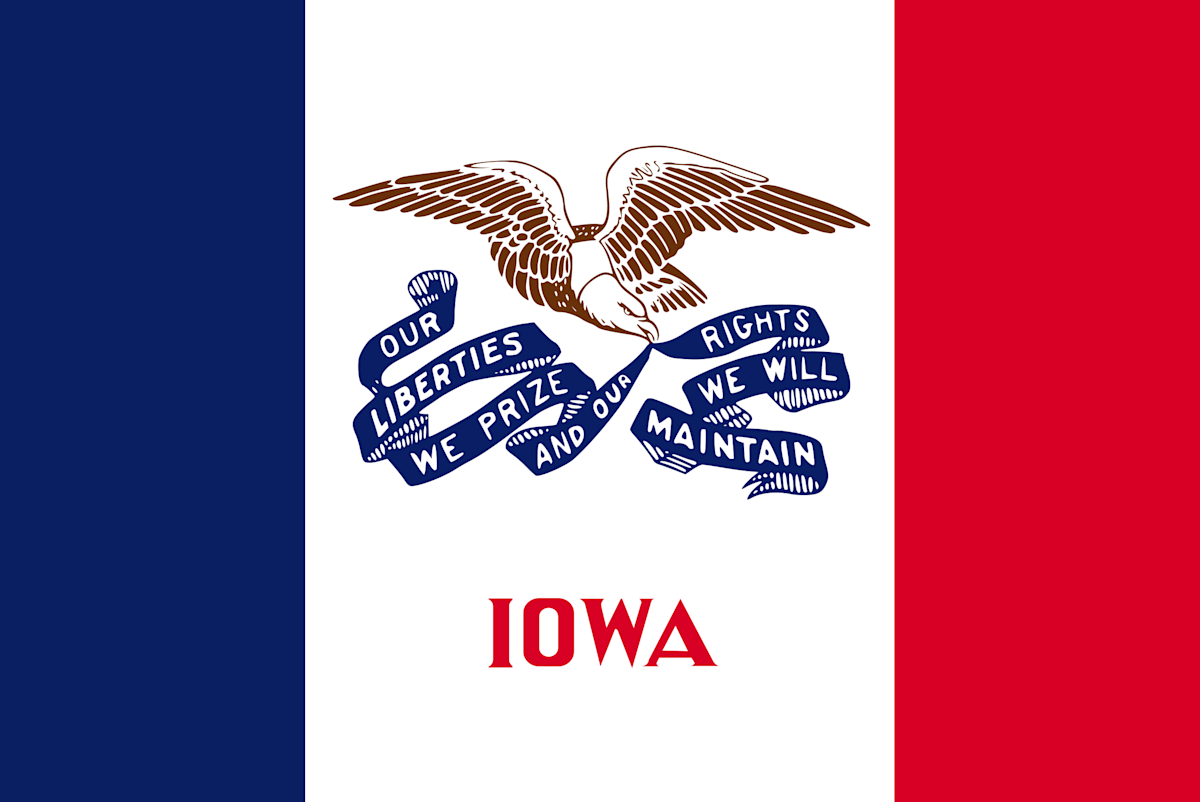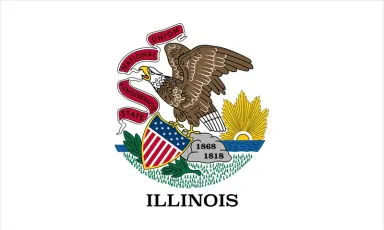Iowa Trucking Laws

Iowa, part of the great American Midwest, is primarily known for its immense corn production. The United States grew over 13.7 billion bushels, with at least 2.5 billion coming from the Hawkeye State. Aside from corn products, Iowa-based companies also export a range of agricultural items, from soybeans to pork cuts. These products travel to countries like Canada, Mexico, and Japan.
Given the state’s status as a major agricultural hub, it is unsurprising that there are many trucking companies in the area. At least one out of 13 jobs in Iowa is in the industry. Around 11,000 interstate and 9,200 intrastate trucking businesses are located throughout the state. Iowa truck operators move over 341,000 tons of goods daily.
The trucking industry's significant presence also means truck accidents are happening. Over 1,750 crashes involving large trucks were recorded in 2022, although there was an 18% decrease from 2,149 in 2021. Fatalities comprise 3.3% of 2022 accidents. Transportation-related accidents, however, account for 51% of all work-related deaths in 2021.
While such cases have been on a downward trend, Iowans must remain vigilant when driving with nearby trucks on the road. If an accident occurs, a working knowledge of the state’s laws can be helpful in pursuing claims. This article delves into the rules and regulations governing Iowa’s trucking industry. It contains educational content like the state’s statute of limitations and insurance requirements. Additionally, the article provides legal resources for Iowans seeking compensation from liable parties.
Iowa Oversize and Overweight Load Permit Laws
According to state law, trucks are allowed to operate up to 25% more than their registered weight if they have permits. Vehicles that weigh over 80,000 pounds or have a maximum load of 20,000 pounds per axle also require a permit. The limit increases to 25,000 pounds per axle for trucks that move various goods, including agricultural chemicals, plant food materials, and agricultural lime.
Companies that operate such vehicles also need to obtain permits if their truck’s dimensions are greater than:
8 feet and 6 inches in width
13 feet and 6 inches in height
45 feet in length for a single vehicle
53 feet in length for an empty or loaded trailer
57 feet in length for a lowboy trailer solely used for moving construction equipment
Meanwhile, trucks that contain tandem axles using pneumatic tires should weigh 34,000 pounds at most. Furthermore, commercial vehicles that move non-divisible loads should have permits in place. The Iowa Department of Transportation (Iowa DOT), which permits drivers to travel across state highways, issues these documents. However, it is important to note that certain city or county roads may restrict overweight trucks.
According to the Iowa DOT, Jasper, Cass, Allamakee, and Sioux counties maintain overweight restrictions. The number of areas that restrict oversize trucks is higher, though. Polk County — home to the state capital, Des Moines — is on the list of territories prohibiting very large vehicles.
In February 2023, Iowa Governor Kim Reynolds signed Senate Bill 153 into law. The new regulation allows traffic authorities to issue single-trip permits for overweight trucks during emergencies. These situations include tornadoes, severe snowstorms, or floods. Reynolds has likewise issued proclamations in previous years that provide temporary weight limit exemptions for trucks carrying agriculture-related products, such as corn, soybeans, manure, and fertilizer, during harvest periods.
Trucking companies that violate state laws face fines depending on their vehicle’s excess weight. For example, trucks exceeding the limit by 1,000 pounds have to pay a $12 fine. Penalties drastically increase when the weight goes over 2,000 pounds; offenders must pay at least $155 in fines. Moreover, truck operators whose rigs weigh more than 20,000 pounds face a $2,200 fine and an additional 10-cent surcharge per pound over 20,000 pounds.
State law classifies overweight limit violations as a simple misdemeanor charge. Drivers convicted of this can pay fines between $105 and $855 or face a maximum of 30 days in jail.
To report violators, one can send an email to the Motor Vehicle Enforcement (MVE) captain in their area.
Iowa Slow Down or Move Over Laws
State law requires Iowans to decrease their driving speed or change lanes when approaching stationary vehicles flashing emergency lights. The law helps provide certain workers, like tow truck operators and police officers, with the space to do their jobs.
In 2002, Iowa’s move over laws applied only to specific maintenance and emergency vehicles, and the 2017 amended version included workers operating near roadways. In 2018, Iowa's state authorities made further revisions to the law. This time, such rules apply to private vehicles with flashing or hazard lights.
To increase compliance with the regulation, Iowa DOT regularly collaborates with the American Automobile Association (AAA) on its “Move Over for Me” campaign. Iowans can find educational resources about it through social media platforms, local community events, and various service vehicles.
The Iowa Association of Electric Cooperatives is another group that supports the state's move over laws. It has made a YouTube video reminding drivers to slow down or change lanes when approaching linemen, since failing to do so could jeopardize the safety of everyone involved.
Individuals who violate the state law face $100 in fines. If they caused a crash that resulted in property damage by not slowing down or moving over, they would face a 90-day license suspension. In cases involving injuries, the suspension goes up to 180 days plus $500 in fines. If death occurs, at-fault drivers cannot use their vehicles for one year and must pay a $1,000 fine.
Iowa Hazardous Material Transport Laws
Besides agricultural products, trucks also move hazardous materials across the Corn State.
One of these is anhydrous ammonia, a fertilizer that farmers inject into the ground and use all over North America. Its largest producer in the US currently manages a production facility in Iowa's Sergeant Bluff. A company also plans to build a plant in Menlo that, when completed, will transform corncobs into anhydrous ammonia.
Anyone handling the chemical should be wary of its adverse effects on the human body, including severe irritation, permanent tissue damage, and even frostbite.
The chemical's hazardous nature requires truckers to have a Hazardous Materials Endorsement (HME) on their license from the Iowa DOT. A background check from the TSA is part of obtaining an HME. Vehicle operators must also not have any record of crimes like treason, sedition, espionage, murder, or terrorism. Some offenses disqualify an HME unless the driver is proven innocent. These crimes include robbery, fraudulent entry, and smuggling.
Vehicles allowed to carry hazardous materials should also contain the necessary marks or placards indicating their product's danger. One of these is a sign saying “inhalation hazard.”
Truckers involved in an accident while transporting hazardous materials should report this to either local law enforcement agencies or the Iowa State Patrol. Operators must also notify the Iowa Department of Natural Resources as soon as possible. Advising the department is essential if there is a potential public safety threat.
Iowa Restricted Commercial Driver’s License Laws
Iowans that transport goods like fertilizer products and animal feeds are required to have a restricted commercial driver’s license (CDL). The limited version allows truckers to carry certain goods without the need for endorsement fees and particular driving tests.
The only hazardous materials a driver can transport are solid and liquid fertilizers, such as anhydrous ammonia. Restricted CDL holders can move these in quantities up to 3,000 gallons.
The limited license is valid for a maximum of 210 days. To qualify, truck operators must have no record of multiple licenses. They should also not have any previous convictions for various negligent driving behaviors. Such acts include speeding, following too closely, and driving under the influence.
Iowa Commercial Trucking Insurance Requirements
Drivers moving goods to nearby states should comply with the insurance requirements set by the Federal Motor Carrier Safety Administration. These include:
$750,000 for vehicles carrying non-hazardous goods and weighing 10,001 pounds or more.
$1,000,000 for trucks that transport materials like oil.
$5,000,000 for hopper-type vehicles or trucks that tow cargo tanks and transport certain hazardous substances in bulk.
Under state law, all motor vehicles operating in Iowa must carry liability policies to prove their financial responsibility. The minimum requirements set are:
$20,000 for the death or injury of a person in one accident.
$40,000 for the death or injury of two or more people, with a limit of $20,000 set per person.
$15,000 for property damage.
Unlike its neighboring states, Iowa does not require uninsured or underinsured motorist insurance for its drivers. However, insurance providers need to offer such policies, with motorists given the option to ultimately reject these add-ons if they want to.
Iowans can only drive on state roadways with proof of insurance. The document can be in paper or electronic format, depending on the insured's request. It should contain numerous vital details, including the address and name of the insurance provider, as well as the expiration date of the policy.
Those caught by law enforcement personnel traveling without proof of insurance might face a $325 fine. The penalty will increase to $645 if a driver is involved in an accident. State law mentions that 50% of the offender's fine will be deposited in the state’s victim compensation fund. The county gets 25% of the penalty, while the state gets another 25% for its general fund. There are other consequences as well. Law enforcement personnel may impound the vehicle or remove its registration receipt and license plate.
CoverWallet — an online insurance broker — has found that Iowan truckers typically pay an average of $5,615 to $8,866 annually for liability insurance. The premium can go up if drivers acquire additional coverages like cargo insurance.
How Much Can Someone Sue For a Truck Accident in Iowa
There are no limits on the economic and punitive damages a victim can obtain in a truck accident case in Iowa. However, if a bill passed by the Iowa House of Representatives becomes law, there will be a $5 million cap on noneconomic damages from truck-related accidents, except in cases involving DUI or human trafficking.
In general, the final amount of damages will be based on a case’s specific circumstances. For example, wrongful death lawsuits often require the defendant to compensate for costs like:
Lost wages
Burial and funeral expenses
Healthcare-related bills
Loss of the deceased’s emotional support
The victim’s pain and suffering
No funeral expenses and other death-related damages will be included when computing the value of a personal injury suit. However, it may take into account both past and future medical expenses related to the injury.
Iowa Statute of Limitations for Truck Accidents
The Hawkeye State grants a two-year window for truck accident claims. Victims are able to press lawsuits against at-fault parties within two years from the date of the accident. The timeline remains the same for wrongful death cases, but with the “clock” only running after the victim’s death.
However, there are some exceptions. In some instances, a trucker who causes an accident flees the state and is consequently classified as a “non-resident.” This period of non-residence does not count in the two-year timeline.
Additionally, victims who are under 18 or who have a mental illness cannot file a claim until they turn 18 or until various authorities deem them competent. In situations where the truck accident was caused by a defective part of the vehicle, the statute of limitations is 15 years. The time starts from the product’s installation, purchase, or lease.
Iowa is a Fault State for Insurance Claims
Iowa operates an at-fault system. Those who have incurred injuries from truck accidents can recover compensation from the trucker’s insurance provider. The state’s at-fault system allows accident victims to manage medical expenses. They can also file a claim with their own insurance company through their comprehensive and collision coverage.
Iowa is a Modified Comparative Fault State for Trucking Accident Lawsuits
Plaintiffs can obtain damages from responsible parties as long as their fault does not exceed the defendant's. Under the modified comparative fault system, a lawyer must prove their client’s responsibility is not 51% or above. Iowa joins 22 other states that maintain the 51% bar rule. Plaintiffs in such states can still recover compensation from liable parties if their fault is only 50% or less.
To illustrate, suppose you were injured in a truck accident and your damages total $10,000. If a court finds you to be 40% responsible for the crash — maybe because you were running a stop sign or using a phone while driving — the amount you can obtain would decrease by $4,000 (or 40%). The final compensation you will gain, therefore, is $6,000.
Average Settlement for Iowa Trucking Accident Lawsuits
Settlement amounts highly depend on a victim’s case. Individuals with moderate injuries take home $36,500 on average in a vehicular accident. However, the compensation for those with minor scrapes or bruises is usually just $1,500. Final damages drastically increase for Iowans with catastrophic injuries, with the average reported to be $1.5 million.
Additionally, a plaintiff's final compensation will decrease if their lawyer employs a contingency fee setup. Unlike paying an hourly rate, plaintiffs compensate their attorneys an agreed-upon percentage after they recover damages from responsible parties. Around 35% to 50% of a lawyer’s contingency fee typically goes to business expenses.
Legal Resources for Iowa Trucking Accident Victims
Iowa Department of Transportation
Previously known as the Iowa State Highway Commission, Iowa DOT has been serving the state’s residents and businesses since 1904. The organization operates six divisions. One of these — the System Operations Division — is where the MVE unit falls. It oversees truck-related investigations involving matters like hazardous materials. Iowans can send comments or questions through the MVE page.
Iowa State Patrol
As part of its services, the organization educates Iowans about driving in the winter and provides crash-related statistics. It also runs the Technical Collision Investigation Unit. Its personnel produce field sketches, review skid marks, and examine speedometers to help determine liable parties. Individuals injured in accidents can also visit the site to obtain crash reports.
Iowa Insurance Division
The organization oversees insurance agents and companies across the Hawkeye State. It works with the National Association of Insurance Commissioners to establish best practices across the state and coordinate regulatory oversight. The organization also deals with insurance fraud cases through its Fraud Bureau. Individuals are highly advised to report instances of fraudulent activity related to the field.
Iowa Legal Aid
The nonprofit organization regularly consults with the Iowa State Bar Association to help vulnerable residents with their legal concerns. It has assisted vehicular accident victims in meeting court deadlines and taking their cases to trial. It also advises clients who have been affected by odometer fraud. One can contact the organization by calling 1-800-532-1503 or sending an email to info@iowalaw.org.
Expertise.com StaffAuthor
Step into the world of Expertise.com, your go-to hub for credible insights. We don't take accuracy lightly around here. Our squad of expert reviewers, each a maestro in their field, has given the green light to every single article you'll find. From rigorous fact-checking to meticulous evaluations of service providers, we've got it all covered. So feel free to dive in and explore. The information you'll uncover has been stamped with the seal of approval by our top-notch experts.




